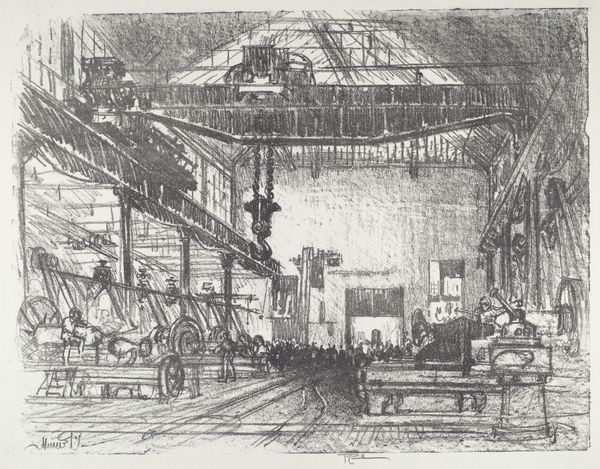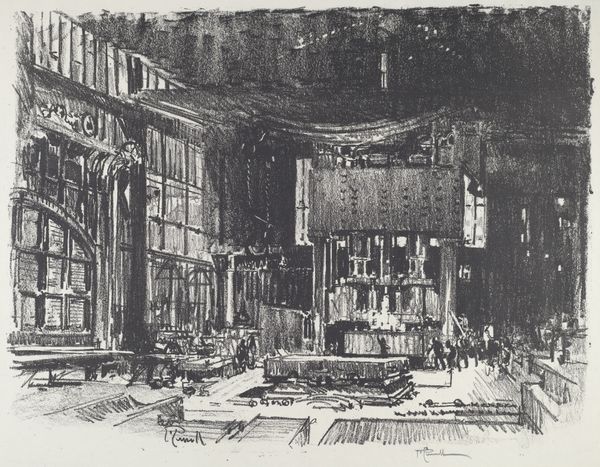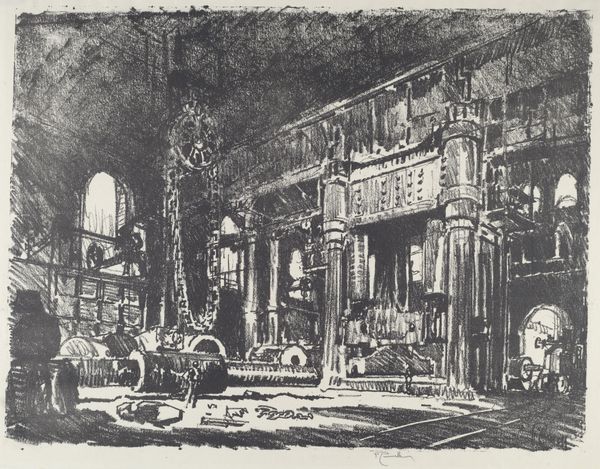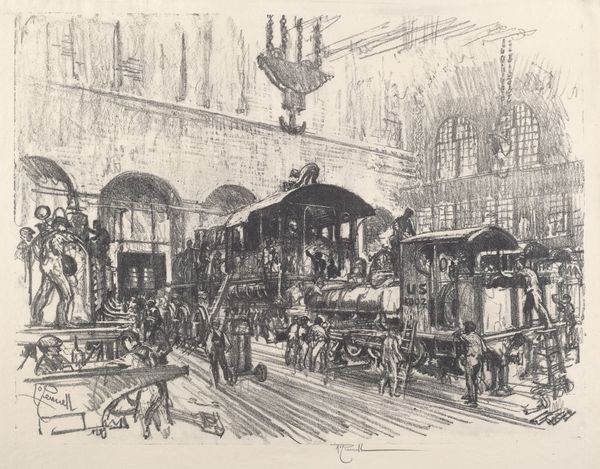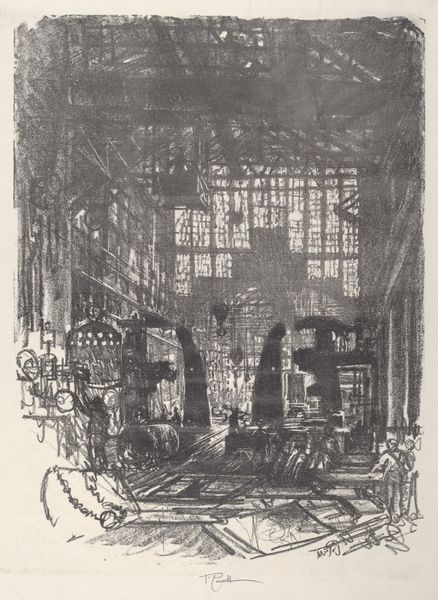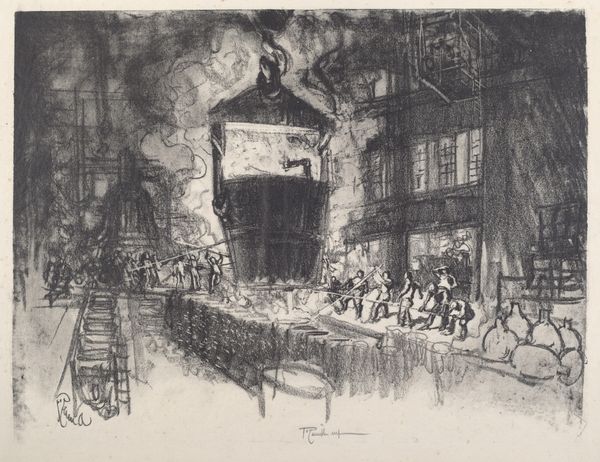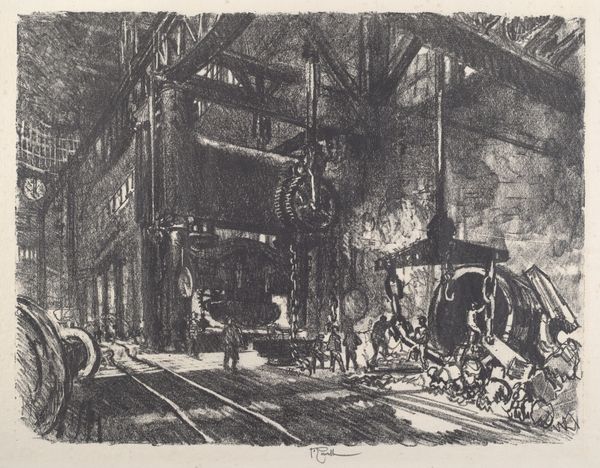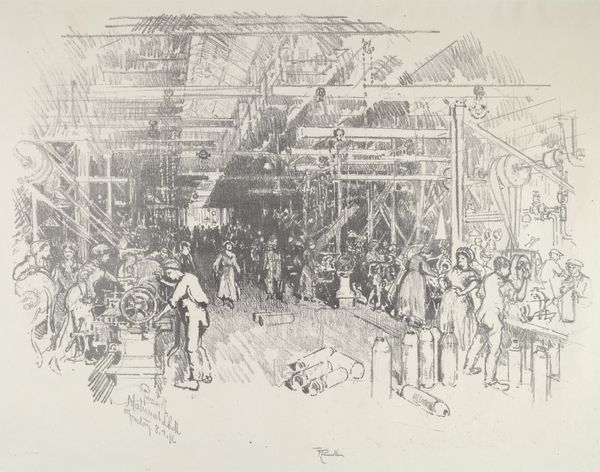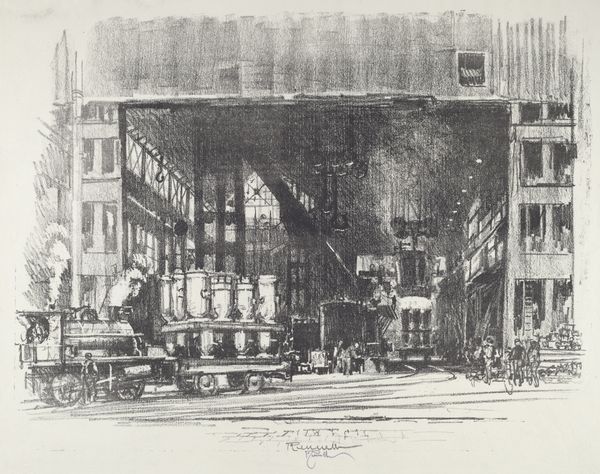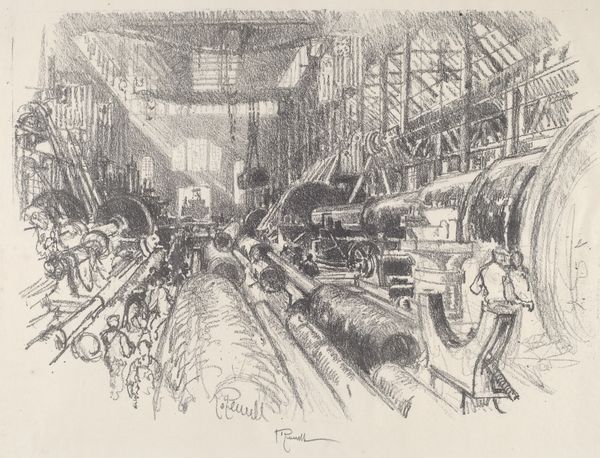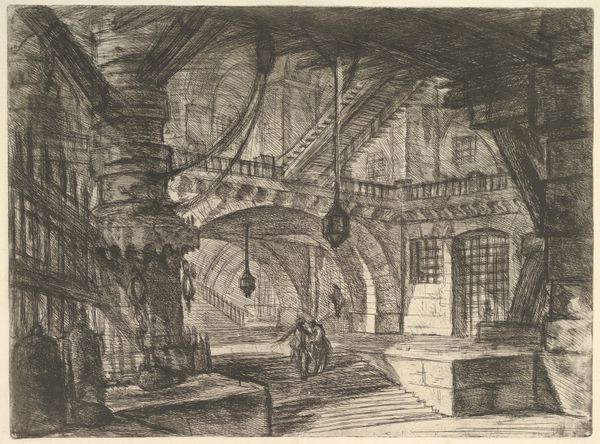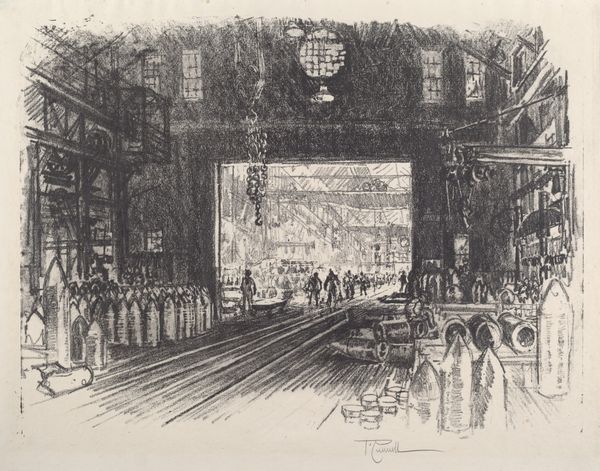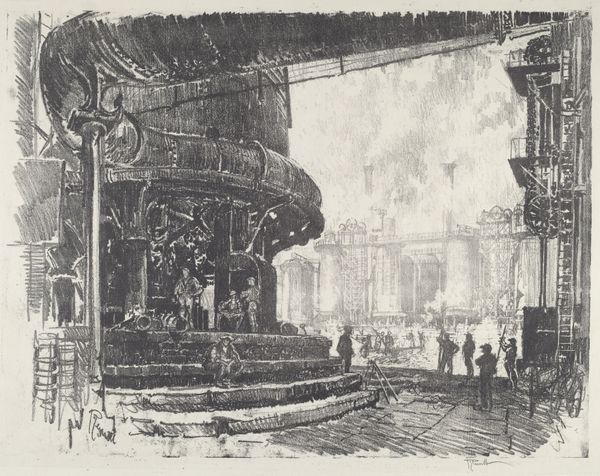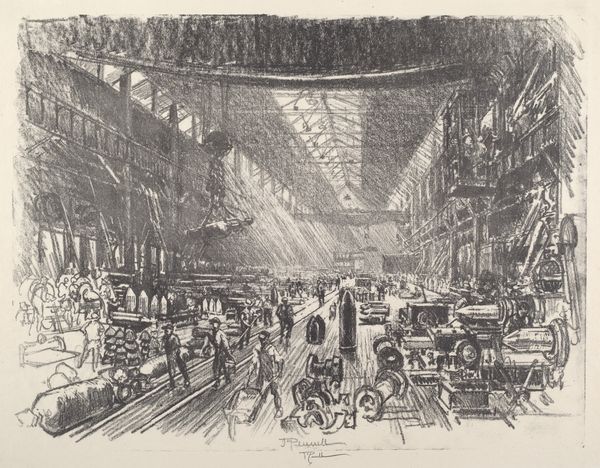
# print
#
line
#
cityscape
#
realism
Copyright: National Gallery of Art: CC0 1.0
Joseph Pennell's etching "The Presses" depicts a vast industrial interior bustling with activity, its scale and machinery evoking both awe and a sense of human insignificance. Dominating the scene are the presses themselves, powerful symbols of mass production and the modern age. This motif of the machine as a transformative force echoes through art history. Think of the Cyclops' forge in classical mythology, or the printing press in the Renaissance, both representing the power to shape the world. Yet, here, the presses take on a more ambiguous role. The raised arms of some figures mimics gestures seen in ancient depictions of labor or sacrifice, hinting at the potential for both creation and destruction inherent in industrial progress. Consider the emotional weight of this scene. The repetitive actions and the sheer scale of the machinery could evoke a feeling of alienation, a sense of humanity lost in the face of technological advancement. This fear, deeply embedded in the collective consciousness, resurfaces in various forms, from the Luddite movement to contemporary anxieties about automation. Pennell's work, therefore, is not just a record of an industrial landscape but a complex reflection on the psychological impact of modernity.
Comments
No comments
Be the first to comment and join the conversation on the ultimate creative platform.
